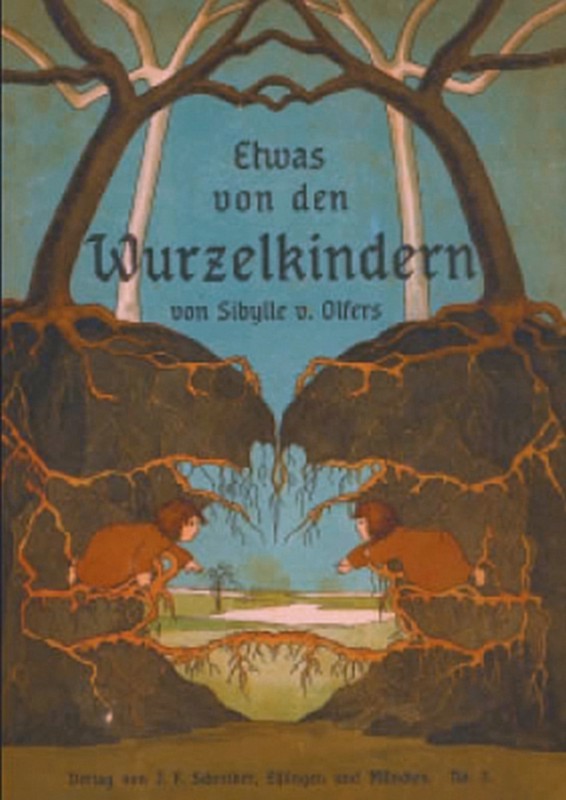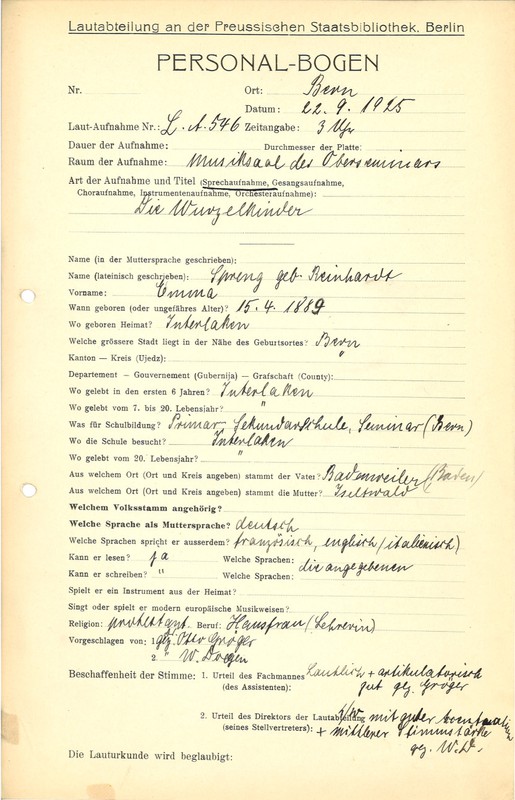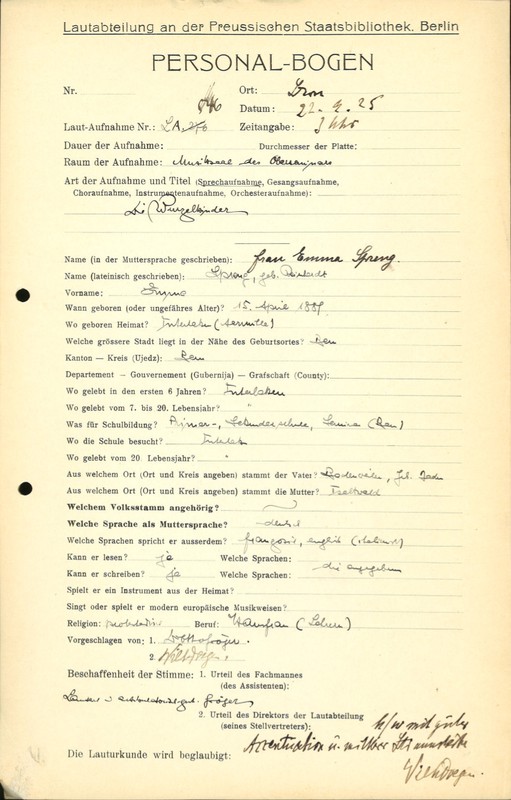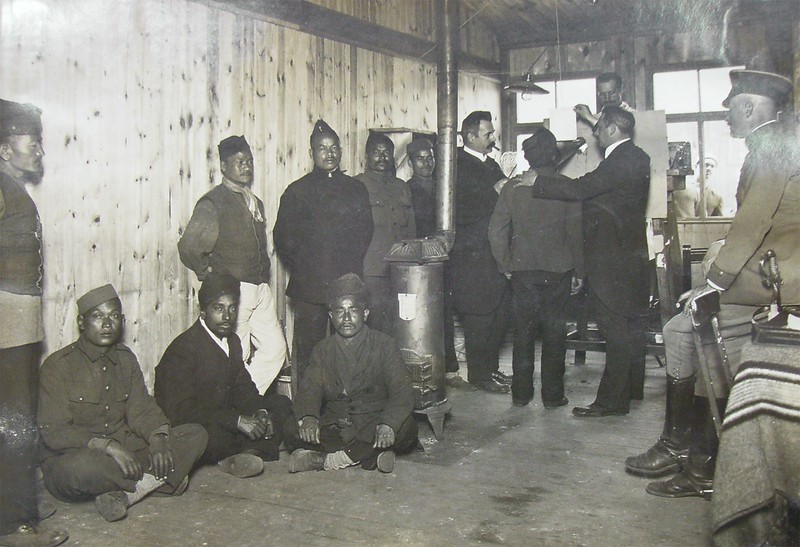Emma Spreng, Bernese Oberland Example from the Dialect Collection
The Berne teacher Emma Spreng was one of the few women to make a recording, on September 22, 1925, as part of the dialect recordings, with the Inventory No. LA 546.
The so-called German Dialect Recordings were made mainly in the 1920s and 1930s with linguistic research in mind. They consist primarily of regional tales and the “Wenker sentences” developed by the linguist Georg Wenker at the end of the nineteenth century as a set of 40 standardized sentences. For purposes of dialect research comparison these sentences were to be written down and spoken by the speakers in their local dialects.
Emma Spreng’s dialect recording No. LA 546 was one the tales freely recited and has not, as far as we know, been used for specific linguistic research of any kind.
Sound Recording by Emma Spreng, LA 546
Emma Spreng-Reinhardt, born on April 15, 1889, was a teacher at the Oberseminar in Bern, Switzerland, which is where her voice was recorded. Her recording, along with 42 others, was made in cooperation with the Phonogram Archive in Zurich, where they are classified as “Berlin Recordings (LA) of 1925.”
She spent four minutes telling in the Swiss German dialect of the Bernese Oberland the tale of the Wurzelkinder, based on the then popular German children’s book of the same name by the East Prussian author Sybille von Olfers.
As the Sound Archives makes every effort to respect the rights to the voice of the data subjects, provenance research is an important part of our work. Due to limited capacity and abundance of material, however, this research cannot at present be undertaken comprehensively. Emma Spreng’s case is a pleasing example of re-individualization of a sound recording. In the course of genealogical research a descendant came across her acoustic legacy. He contacted the Sound Archives and felt that future online availability of her recording was “totally unproblematic and to be recommended” (email dated 21.06.2015 from Heinrich Buri to Yvonne Reimers). As part of a student project Yvonne Reimers and Johanna Lessing went on to write an object biography for Emma Spreng’s recording in the seminar “You Have My Word. Legal and culture-ethical criteria for the use of recordings from the Sound Archives of the Humboldt-Universität zu Berlin.” So the re-individualization of this recording has not led to any ethical or legal objections to using it for research purposes today.
Further Material
Dialect recordings are, of course, rather different from recordings made in prisoner of war camps. We can now assume that the dialect recordings were made without a background of stark power imbalance or other forms of coercion. In the 1920s, however, the personal information forms did not include the speaker’s consent to the use of dialect recordings and consent was given only infrequently in the 1930s, attention should nonetheless be paid to their provenance.
Emma Spreng is, moreover, one of only a handful of women speakers in the Sound Archives collections. The different categories and questions on the form (such as “Can he read?”) make it clear that mainly male voices were to be recorded.
Object Biography
- November 22, 1925
- Recording by Emma Spreng in the music room of the Bern Oberseminar, subsequent classification: LA 546, title: Swiss German, fairy tale, title: Wurzelkinder, duration: 4:13 min.
- 2015
- In the research seminar “You Have My Word. Legal and culture-ethical criteria for the use of recordings from the Sound Archives of the Humboldt-Universität zu Berlin” (Thomas Hartmann, Dr. Jochen Hennig, PD Dr. Britta Lange) the students Johanna Lessing and Yvonne Reimer undertake a project entitled “Provenance Research Based on the Example of Emma Spreng’s Dialect Recording.”
- 2015
- Contacts between Emma Spreng’s great-nephew Heinrich Buri and the Sound Archives. He gives his consent to the further use of the recording.




